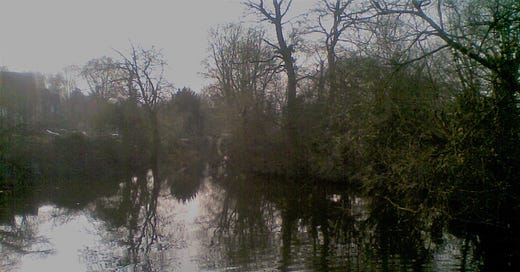My Beloved River
I could feel my heart beginning to swell as I approached the brow of the hill, and I freewheeled down, until there she was before me - my beloved river: my place of sanctuary and delight...
I could feel my heart beginning to swell as I approached the brow of the hill, and I freewheeled down, until there she was before me - my beloved river: my place of sanctuary and delight. At that moment, my tears started falling.
I had discovered her by accident, one beautiful summer’s day, when friends invited me to a small music festival along her bank…
Keep reading with a 7-day free trial
Subscribe to Advantages of Age to keep reading this post and get 7 days of free access to the full post archives.




